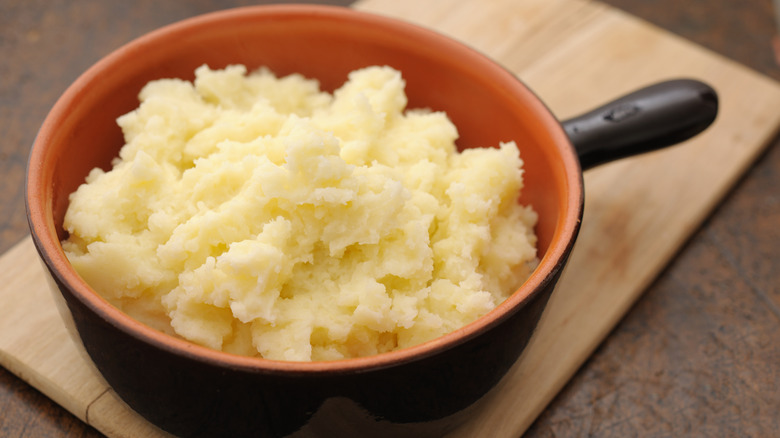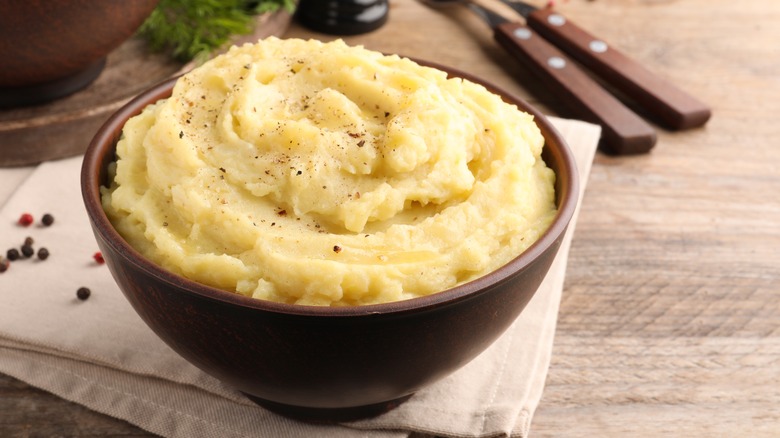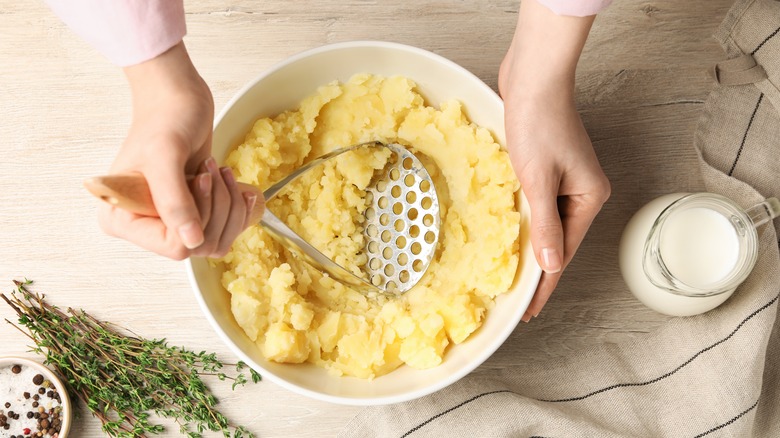Freezing Mashed Potatoes Doesn't Have To Result In A Soggy Mess
Mashed potatoes are famously uncomplicated to make: you just cook up some russet potatoes, mash them, and add lots of butter and salt to taste. Often you might add other ingredients of your own, like French onion dip. However, while freezing mashed potatoes isn't too tricky, it can be tough to make sure they're still just as fluffy as they originally were before their time in the freezer.
Part of the problem is that mashed potatoes contain a lot of liquid, so your goal is to keep them from getting watery once you thaw them. Generally, the solution is to add extra fats to the mashed potatoes to stave away the sogginess. Extra butter and heavy cream are the obvious dairy items to reach for, but you won't be dissatisfied adding sour cream or cream cheese as well. Each tastes perfectly fine when incorporated, and they keep the dish as rich and thick as when they were first whipped.
A few good spuds
The reason they can help preserve your potatoes' texture is because, in the culinary world, these ingredients are known as "stabilizers." This means they help dishes remain thick, adding body and flavor back to the watery starch. Though they can technically last a few months frozen, they're best if you unthaw them within a month of freezing.
The process for freezing mashed potatoes depends on how much you're working with. For small portions, they should be scooped onto a parchment-lined paper or baking sheet, cooled until solid, and then transferred to resealable containers like Ziploc bags for long-term storage. It's important to work out any extra air and let them freeze flat to optimize storage space. For family-sized portions, place them in a larger container like a casserole dish (make sure it's freezer-safe) and cover it with parchment and then a few layers of plastic wrap to keep freezer odors out.
Mashed potatoes which last
Frozen mashed potatoes are also vulnerable to freezer burn, where all of the moisture has frozen up instead and the potatoes seem dried up. What helps is to cool the mashed potatoes first before you freeze them. You can either leave them out or place them in the fridge briefly before; this way, you can avoid condensation that leads to freezer burn, which might happen if you place hot potatoes directly into the freezer.
If you're planning to freeze the mashed potatoes right away — maybe you're getting ready for Thanksgiving dinner early — then you can avoid adding all of the liquid ingredients that you might normally add. Instead, hold onto some of it and then add it later, once you're thawing the potatoes. However, this doesn't apply if you're cooking mashed potatoes that you plan to eat before freezing the leftovers, because it won't be tasty if you forgo all the rich dairyfats.


